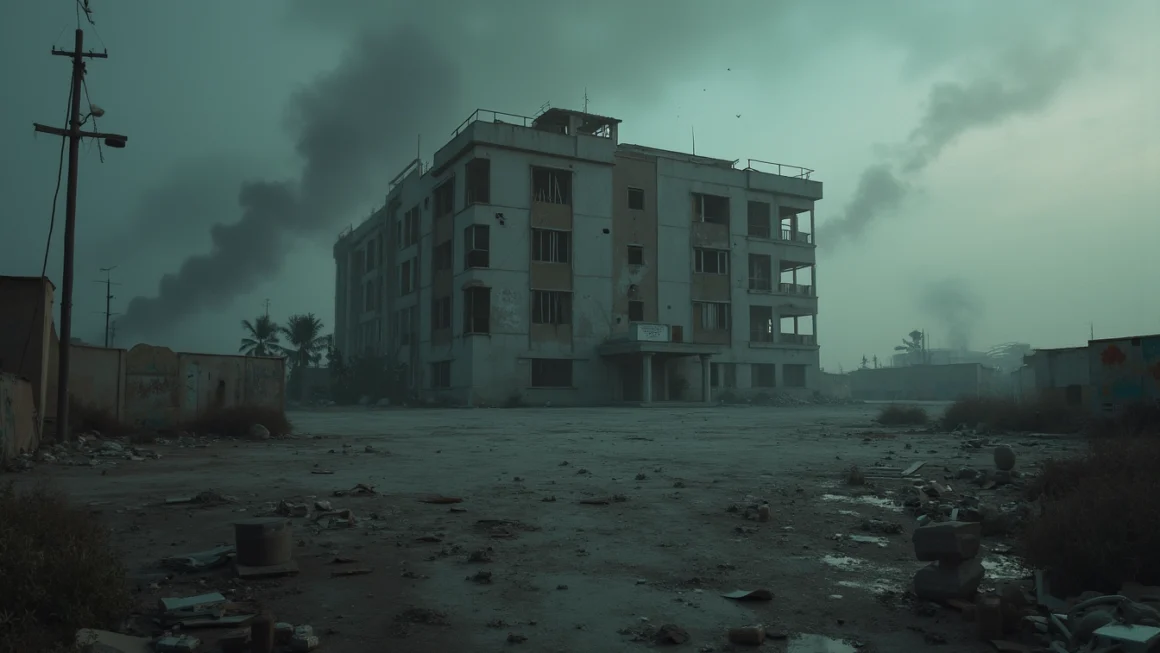In a distressing turn of events, the Kamal Adwan Hospital in northern Gaza has been rendered non-operational following a raid and repeated attacks since October. This development has raised serious concerns about the state of healthcare infrastructure in the region and the impact on civilian populations caught in the crossfire of ongoing conflicts.
The Impact of the Raid on Kamal Adwan Hospital
Table of Contents
The recent raid on Kamal Adwan Hospital has left the facility unable to provide essential medical services to the local population. This incident is not isolated but part of a series of attacks that have targeted the hospital since October. The repeated assaults have severely compromised the hospital’s ability to function, leaving countless patients without access to critical care.
Consequences for Public Health
The closure of Kamal Adwan Hospital has far-reaching implications for public health in the region. With one less operational medical facility, the strain on remaining healthcare resources is expected to increase dramatically. This situation could lead to:
- Overcrowding in other hospitals
- Delayed treatment for urgent medical conditions
- Increased risk of disease spread due to inadequate healthcare access
- Higher mortality rates for treatable conditions
The Broader Context of Healthcare in Conflict Zones
The attack on Kamal Adwan Hospital is a stark reminder of the challenges faced by healthcare facilities in conflict-prone areas. Hospitals, which should be sanctuaries of healing, often become targets in warfare, violating international humanitarian law and putting countless lives at risk.
International Response and Humanitarian Concerns
The international community has expressed deep concern over the situation. Humanitarian organizations are calling for immediate action to protect medical facilities and ensure the safety of healthcare workers. The incident has reignited discussions about the need for stronger measures to safeguard hospitals in conflict zones.
The Role of Technology in Crisis Response
In light of these challenges, the importance of efficient crisis response systems becomes evident. Modern technology can play a crucial role in coordinating relief efforts and managing resources in emergency situations. For instance, automation platforms can streamline communication and logistics in humanitarian operations. To explore how automation can enhance crisis response, you might want to check out this automation tool that offers solutions for various sectors, including disaster management.
Long-term Implications for Gaza’s Healthcare System
The repeated attacks on Kamal Adwan Hospital and similar incidents pose long-term challenges for Gaza’s healthcare system. Rebuilding and restoring trust in the safety of medical facilities will be a complex and time-consuming process. Key concerns include:
- The need for substantial funding to repair and upgrade damaged facilities
- Addressing the psychological impact on healthcare workers and patients
- Implementing robust security measures to prevent future attacks
- Ensuring continuous medical supply chains in a volatile environment
The Way Forward: Protecting Healthcare in Conflict Zones
As the international community grapples with the aftermath of the Kamal Adwan Hospital raid, several key actions are being proposed:
- Strengthening international laws protecting medical facilities in conflict areas
- Increasing diplomatic efforts to ensure all parties respect the neutrality of healthcare institutions
- Developing rapid response mechanisms to restore medical services in affected areas
- Investing in resilient healthcare infrastructure capable of withstanding conflict-related pressures
Conclusion: A Call for Action
The situation at Kamal Adwan Hospital serves as a grim reminder of the vulnerabilities faced by healthcare systems in conflict zones. It underscores the urgent need for concerted global efforts to protect medical facilities and ensure uninterrupted access to healthcare for all, regardless of geopolitical circumstances. As the international community responds to this crisis, it is crucial to remember that the preservation of human life and dignity must remain at the forefront of all humanitarian efforts.
The path to recovery and rebuilding will be challenging, but with coordinated efforts, innovative solutions, and a commitment to upholding international humanitarian law, it is possible to create a future where hospitals like Kamal Adwan can fulfill their mission of healing without fear of attack.




